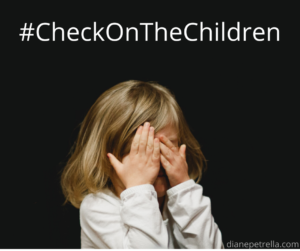Breathe: A Trauma-Informed Tool for Intuitive Eating
 For many who’ve experienced childhood or adolescent trauma, food became your emotional life preserver, and it’s understandably hard to let it go.
For many who’ve experienced childhood or adolescent trauma, food became your emotional life preserver, and it’s understandably hard to let it go.
Perhaps you discovered how food helped you cope with overwhelm and stress when you were 16, 12, nine—or even four years old. Now you’re an adult, and it’s hard to sense when you’re actually hungry. When stress hits, tuning into your body’s needs isn’t what you think about.
You just want relief—fast.
The idea of intuitive eating can feel downright impossible.
Because when you feel stressed and scared, you’re not accessing intuition, you’re accessing survival instincts. That’s your fight/fight/freeze response. In survival mode, impulse overrides thoughtful reflection. Think about it: If you feel in danger you don’t take time to map out the shortest route to safety—you just run.
And sometimes you run to Burger King.
A Relaxed Body = An Intuitive Body
So can you learn to practice intuitive eating if you have a history of trauma? The answer is yes. And learning to calm your body when stressed will help you make mindful and intuitive—rather than impulsive—choices. Calming your body activates the relaxation response. And it’s the relaxation response that helps you access your intuition and body wisdom.
Think of it this way: (more…)


 The 90-second rule is one of my favorite techniques to help my clients cope with stress and stop the urge to impulsively turn to food for comfort.
The 90-second rule is one of my favorite techniques to help my clients cope with stress and stop the urge to impulsively turn to food for comfort.
 Were you sexually abused as a child or teenager?
Were you sexually abused as a child or teenager? Staying home during this pandemic is the right thing to do. But when it started, the first thing I thought was:
Staying home during this pandemic is the right thing to do. But when it started, the first thing I thought was:
 Happy 2020! Instead of making hard-to-honor resolutions (like releasing those last 10 pounds by February or getting to the gym at 5:30 every morning), I recommend starting the New Year with a recommitment to your overall health and fitness.
Happy 2020! Instead of making hard-to-honor resolutions (like releasing those last 10 pounds by February or getting to the gym at 5:30 every morning), I recommend starting the New Year with a recommitment to your overall health and fitness.

 Springtime clutter clearing can be a stressful time for people riding the yo-yo dieting roller coaster:
Springtime clutter clearing can be a stressful time for people riding the yo-yo dieting roller coaster: